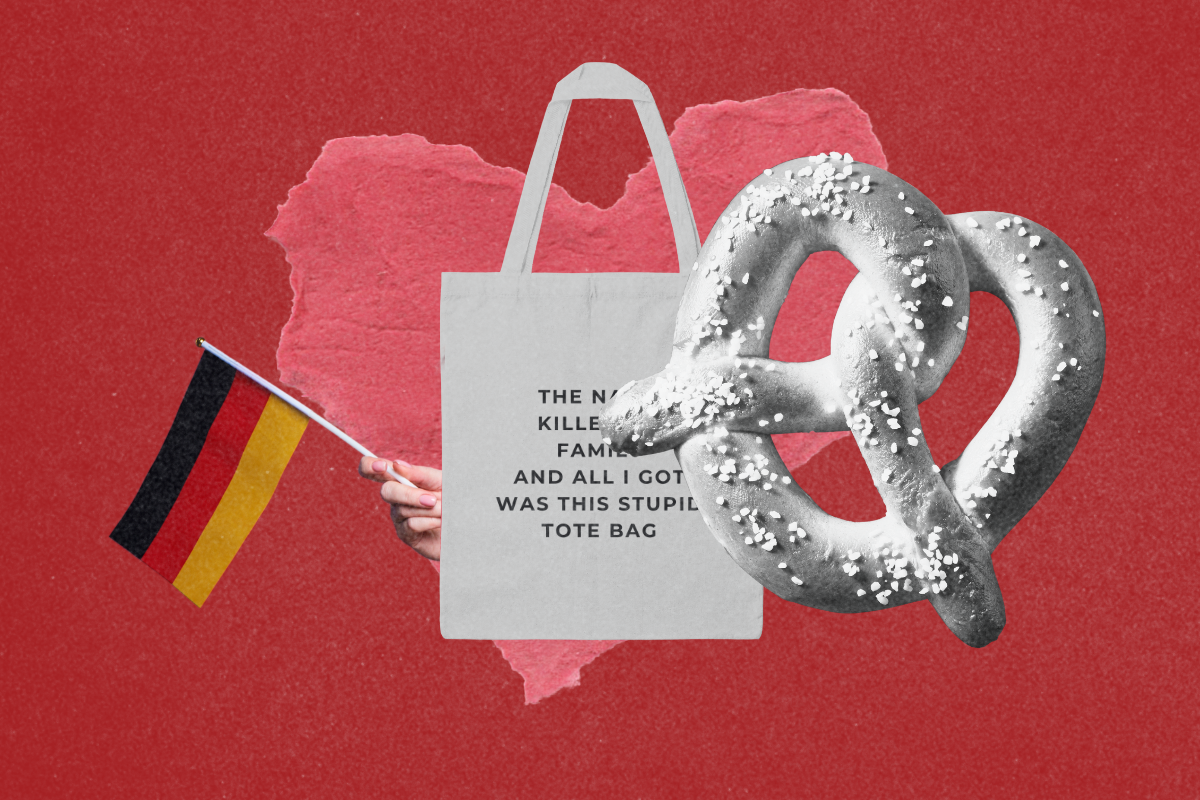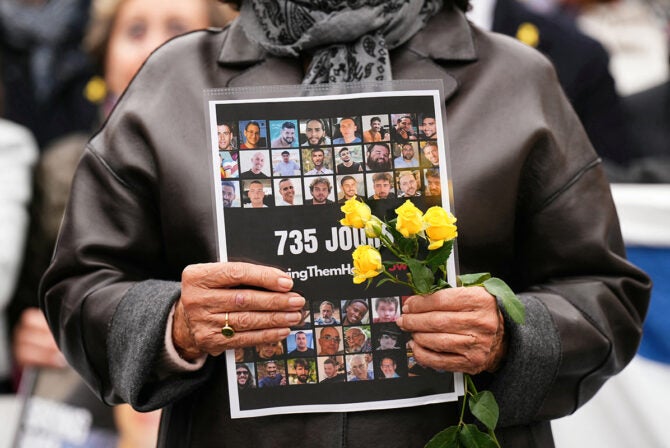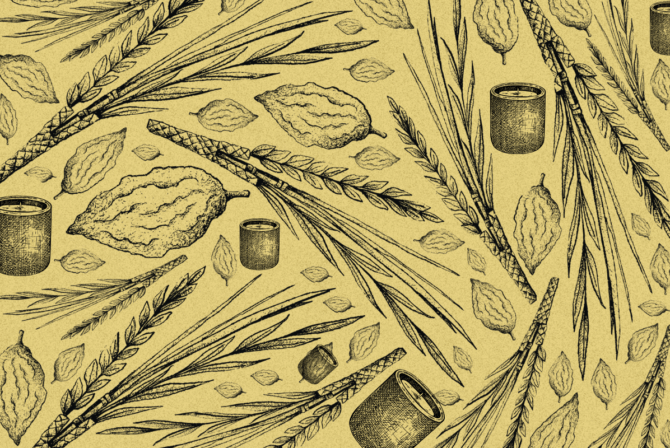After losing a parent, I expected to experience the five stages of grief, but no one talks about the sixth stage: a strong desire to become a German citizen. It took me by surprise, too. One day I was feeling sadness and the next a profound disconnection from my German heritage and a craving for pretzels.
In early 2021, I heard about a German law called Article 116, which allows descendents of those who lost German citizenship due to persecution to seek reinstatement of their citizenship. I bookmarked the application on my browser and decided to investigate at a later date. Turns out that later date was just around the corner, after my dad passed away later that year.
Both of my dad’s parents were Holocaust survivors from Germany, but my dad’s German identity was perhaps more like background noise than top of mind. I wish I could ask him if he agreed with that statement.
Anyway, during my childhood, every once in a while, he’d throw out a German phrase he picked up from his parents and he always stocked the fridge with Ba-tampe sauerkraut. His home office was a shrine to all things Hamburger (our very German last name) which was kind of like a cross between the world’s lamest McDonald’s collection and a saccharine nod to our heritage.
But the sixth stage of grief really hit me when I realized I would never hear him sing the German nursery rhyme “Hoppe hoppe, Reiter” again. When my brother and I were young, my grandfather often sang us this nursery rhyme and my father dutifully continued the tradition with any baby willing to engage.
“Hoppe hoppe, Reiter” (or “Hop Hop, Rider”) is a German lap rhyme dating back to the 1800s where an adult bounces a child on their lap like the child is riding a horse. The “rider” encounters several harrowing incidents and then always falls into the mud and “makes a splash” (which is when the adult tips the child back and giggles ensue). It really leans hard into being a German nursery rhyme stereotype with classic lines like, “If he falls into the hedges, he will get frightened.” And the charming, “If he falls on the stone, his leg will get hurt.” But perhaps my favorite is, “If he falls into the ditch, he will be eaten by the ravens.” So fun!
“Hoppe hoppe, Reiter” is one of my strongest connections to the immersive German culture of my grandfather’s youth — a short period of blissful time in Bavaria before the Nazis exiled his family and murdered his younger brother. It is like a window into a lost time that I’ve become somewhat obsessed with learning about in the past year and a half. In photos from this time period, everyone is smiling and joyful. Cousins play together in parks and German hamlets. Families vacation to nearby picturesque destinations like the German spa town of Bad Kissengen. I imagine my great-great-grandfather singing “Hoppe hoppe, Reiter” to my grandfather and his siblings and I feel a little more connected to a life I never knew and people I never met.
The naturalization application isn’t as hard as it is tedious. It amounts to a lot of internet stalking. As an Elder Millennial, I’m adept at scouring the internet to find information about people, only this time it isn’t an ex-boyfriend, it is my ancestors. Let’s just say I thrived.
As I assembled the documentation for my naturalization application, I learned about a 2008 German newspaper article about Kristallnacht that pulled a quote from my great-grandfather’s letter to the International Military Tribunal which was to be used as testimony at the Nuremberg Trials.
Of Kristallnacht, my great-grandfather wrote, “When night fell, my house was completely empty. Everything was lost, only what we had on our body was our own.” He also describes having to sell his car at a ridiculous price to a Nazi in Lohr. Through the process of gathering evidence for my application, I learned the night he lost everything also happened to be his 50th birthday.
About 18 months after I submitted my naturalization paperwork, I received an email from the German consulate in Atlanta that my application had been approved and that my naturalization certificate was waiting for me, so my husband and I made the trip from Athens to Atlanta for me to become German.
Let me start by saying the employees at the consulate were nothing short of lovely and I felt incredibly honored to be embarking on this journey. Let me also say, what a weird experience. Upon entering the consulate and locking up my phone, I had to present my “papers.” OK, OK, I know this is to weed out the people who show up missing half their passport or visa applications and to keep them from gumming up the works, but it was a little unsettling.
Then my husband and I went to a small conference room where a kind employee signed my paperwork, shook my hand, said, “As of this moment, you are a German citizen” and presented me with a German consulate swag bag. Now, I’m not one to turn my nose up at free swag (in this case, a tote bag filled with a water bottle, pin, pen, paper and lanyard), but we weren’t even 10 steps out of the conference room before I was workshopping my “the Nazis killed my family and all I got was this stupid tote bag” joke. After some of the finest people-watching (the German Consulate in Atlanta serves Alabama, Georgia, Mississippi, North Carolina, South Carolina and Tennessee), I had my passport appointment and the process was complete!
For all of five minutes, I had a bit of a pep in my step, swinging my tote bag and generally feeling pretty positive about the entire experience. And then I walked past a car in the garage with the license plate that stopped me in my tracks. Proudly it displayed: “ARYAN R.”
That’s what’s been wild about this experience. One minute I can feel hopeful and excited to reconnect with a part of my heritage and the next moment I feel myself bristling at the sound of the German language. I can feel a moment of peace knowing I reclaimed something that was stolen from my family over 80 years ago and then the next moment someone suggests I might use my citizenship to escape growing antisemitism in the U.S. Now that would have been a good lyric for Alanis Morrisette.
One moment I feel a sense of belonging when I think about Germany and the next I feel like a total fraud since I’m now a German citizen who has never been to Germany and doesn’t know the language, aside from how to say, “He will be eaten by ravens.”
I’ll never reclaim my family’s physical possessions that were destroyed on Kristallnacht or the car my great-grandfather had to sell to a Nazi. Or my grandfather’s childhood home which was most recently a hair salon. Or my great-grandfather’s store which now operates as a gym. Or the life of my great-uncle and countless other relatives.
However, when the kind man at the consulate shook my hand and told me I was officially a German citizen, I felt a rush of sweet emotion and a desire just to let it be. There doesn’t have to be a to-do list of ways I’m going to “use” this new power. The fact that it exists is probably more than any of my ancestors could ever have imagined. I’m hoping one day soon I will make a trip to Germany where I imagine tracking down an equestrian and discussing (in German) all the ways he can fall off his horse and hurt himself. And he will look at me, see that I have the official tote bag of the German people, and say, “Willkommen zu Hause.”








